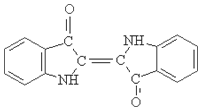Benefits of Premium Quality Sulphur Dyes for Textile Industry Applications
The Significance of High-Quality Sulphur Dyes in Modern Textiles
In the world of textile production, colors play a pivotal role in aesthetics, branding, and consumer appeal. Among the various dye types available, sulphur dyes have carved out a unique niche due to their versatility, cost-effectiveness, and durability. High-quality sulphur dyes, in particular, have become essential in meeting the demands of modern textile applications, driven by both fashion trends and functionality.
What are Sulphur Dyes?
Sulphur dyes are a class of colorants derived from various sulphur-containing compounds, which are known for their affinity to cellulose fibers such as cotton. These dyes are typically applied in an alkaline medium, allowing them to bind strongly to the fabric, resulting in brilliant and long-lasting colors. They are particularly noted for their rich, deep shades and excellent wash fastness, making them a popular choice among fabric manufacturers.
Advantages of High-Quality Sulphur Dyes
1. Colorfastness One of the most significant advantages of high-quality sulphur dyes is their outstanding colorfastness. Fabrics dyed with these dyes withstand washing, light exposure, and rubbing without fading. This is crucial for manufacturers who prioritize the longevity and durability of their products.
2. Versatility High-quality sulphur dyes can achieve a wide range of colors, from deep blacks and vibrant reds to pastel shades. This versatility allows designers and manufacturers to experiment with various hues and shades, catering to diverse consumer preferences.
3. Cost-Effectiveness Sulphur dyes are relatively inexpensive compared to other dye types, such as reactive dyes or vat dyes. This cost-efficiency allows manufacturers to produce high-quality dyed fabrics without significantly increasing production costs, making it an attractive option in a competitive market.
high quality sulphur dye

4. Environmental Considerations With the increasing emphasis on sustainability, high-quality sulphur dyes have a lower environmental impact than many other dyeing processes. Although the traditional dyeing process can produce wastewater that necessitates careful management, advancements in technology now enable the use of more environmentally friendly methods in sulphur dye application.
5. Ease of Application Sulphur dyes are easy to apply through conventional dyeing processes, including batch and continuous dyeing methods. This simplicity in application makes them a preferred choice for high-volume production environments.
Challenges and Innovations
Despite their numerous benefits, there are challenges associated with the use of sulphur dyes. One significant issue is the potential for environmental pollution generated during the dyeing process. To mitigate this, manufacturers are innovating to develop eco-friendly formulations and adopting wastewater treatment technologies to minimize their ecological footprint.
Additionally, present-day consumers are becoming increasingly aware of the chemicals used in textile production. Brands are responding by investing in high-quality, safe, and sustainable dyeing processes, ensuring that their products meet consumer expectations for both quality and environmental responsibility.
Conclusion
High-quality sulphur dyes play a crucial role in the textile industry, offering benefits that meet the both practical and aesthetic demands of contemporary consumers. Their durability, colorfastness, and cost-effectiveness make them an indispensable component of fabric production. As the industry moves towards more sustainable practices, the innovation surrounding sulphur dyes paves the way for a brighter, more environmentally aware future in textiles. Manufacturers and consumers alike should prioritize the use of high-quality sulphur dyes to ensure that the next generation of textiles is not only beautiful but also built to last. This commitment to quality and sustainability will ultimately shape the future of fashion, merging creativity with responsibility.
-
The Timeless Art of Denim Indigo Dye
NewsJul.01,2025
-
The Rise of Sulfur Dyed Denim
NewsJul.01,2025
-
The Rich Revival of the Best Indigo Dye
NewsJul.01,2025
-
The Enduring Strength of Sulphur Black
NewsJul.01,2025
-
The Ancient Art of Chinese Indigo Dye
NewsJul.01,2025
-
Industry Power of Indigo
NewsJul.01,2025
-
Black Sulfur is Leading the Next Wave
NewsJul.01,2025

Sulphur Black
1.Name: sulphur black; Sulfur Black; Sulphur Black 1;
2.Structure formula:
3.Molecule formula: C6H4N2O5
4.CAS No.: 1326-82-5
5.HS code: 32041911
6.Product specification:Appearance:black phosphorus flakes; black liquid

Bromo Indigo; Vat Bromo-Indigo; C.I.Vat Blue 5
1.Name: Bromo indigo; Vat bromo-indigo; C.I.Vat blue 5;
2.Structure formula:
3.Molecule formula: C16H6Br4N2O2
4.CAS No.: 2475-31-2
5.HS code: 3204151000 6.Major usage and instruction: Be mainly used to dye cotton fabrics.

Indigo Blue Vat Blue
1.Name: indigo blue,vat blue 1,
2.Structure formula:
3.Molecule formula: C16H10N2O2
4.. CAS No.: 482-89-3
5.Molecule weight: 262.62
6.HS code: 3204151000
7.Major usage and instruction: Be mainly used to dye cotton fabrics.

